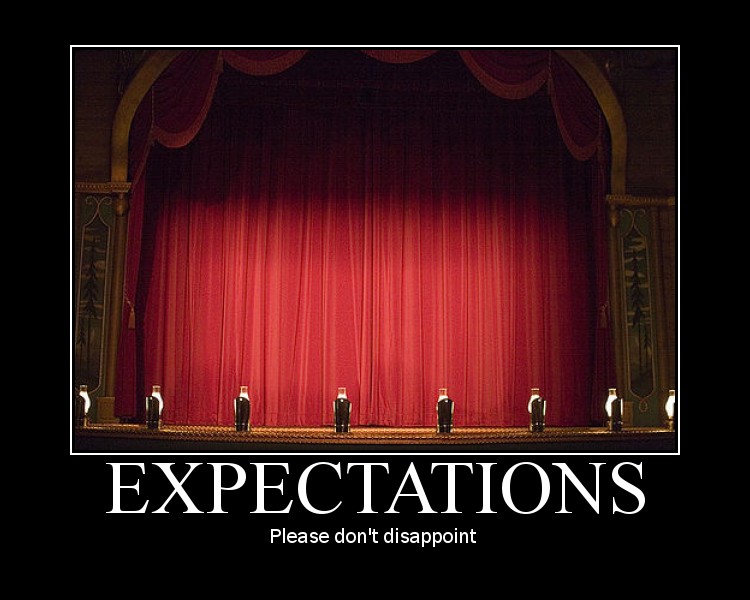Higher Student Expectations?

What is an acceptable level of performance for an 8th grade math student? All public school teachers are required to set student learning targets (SLTs) each year for each classroom of students. Where should the passing scores be set and what is an acceptable level of student failure? One good point of reference should be the state administered 8th grade LEAP math test. Let's examine what is expected by our Department of Education for 8th grade Math.
Superintendent John White has repeatedly suggested that the state should have high expectations of all students and that if have high expectations on state tests that students will achieve more. Is he really following his own advice in designing and grading state tests?
Do you think Superintendent White would accept a passing score of slightly over 40% on a teacher-made final test as acceptable? If the teacher set 40.1% for a minimum score for passing, would it be acceptable for 35% of a classroom of students to score below 40.1%? That's a pretty low expectation isn't it? Yet that's the result of the state-wide performance of our students on the new Common Core aligned 2014 LEAP given this Spring. The official scale score for a level of Basic on the Math 8th grade LEAP remained at exactly the point total used in the past (321 out of a total of 500 points). But the actual percentage of correct answers needed for a score of Basic (the minimum percentage), has been lowered this Spring to only 40.1%. And even with that low expectation, 35% of students state-wide failed to reach the level of Basic. Yet John White, in releasing the LEAP results in May announced that student performance on the new Common Core aligned LEAP tests was "steady" even though the test was more challenging.
It is also interesting that in an earlier press release the LDOE commented on a survey of students taking the new Common Core LEAP, and concluded that students did not find the new tests to be very difficult compared to their classroom work. Here is the quote:
"Of those students taking the computer-based test during the first phase, nearly 70 percent said the test was easier or about the same as their current school work. And, when asked if there were questions about things they have not learned this school year nearly 85 percent said there were none or few questions."
That's a strange conclusion, because most of the students I taught could always tell when a particular test was more difficult than Louisiana Educator: Higher Student Expectations?:
Superintendent John White has repeatedly suggested that the state should have high expectations of all students and that if have high expectations on state tests that students will achieve more. Is he really following his own advice in designing and grading state tests?
Do you think Superintendent White would accept a passing score of slightly over 40% on a teacher-made final test as acceptable? If the teacher set 40.1% for a minimum score for passing, would it be acceptable for 35% of a classroom of students to score below 40.1%? That's a pretty low expectation isn't it? Yet that's the result of the state-wide performance of our students on the new Common Core aligned 2014 LEAP given this Spring. The official scale score for a level of Basic on the Math 8th grade LEAP remained at exactly the point total used in the past (321 out of a total of 500 points). But the actual percentage of correct answers needed for a score of Basic (the minimum percentage), has been lowered this Spring to only 40.1%. And even with that low expectation, 35% of students state-wide failed to reach the level of Basic. Yet John White, in releasing the LEAP results in May announced that student performance on the new Common Core aligned LEAP tests was "steady" even though the test was more challenging.
It is also interesting that in an earlier press release the LDOE commented on a survey of students taking the new Common Core LEAP, and concluded that students did not find the new tests to be very difficult compared to their classroom work. Here is the quote:
"Of those students taking the computer-based test during the first phase, nearly 70 percent said the test was easier or about the same as their current school work. And, when asked if there were questions about things they have not learned this school year nearly 85 percent said there were none or few questions."
That's a strange conclusion, because most of the students I taught could always tell when a particular test was more difficult than Louisiana Educator: Higher Student Expectations?:
